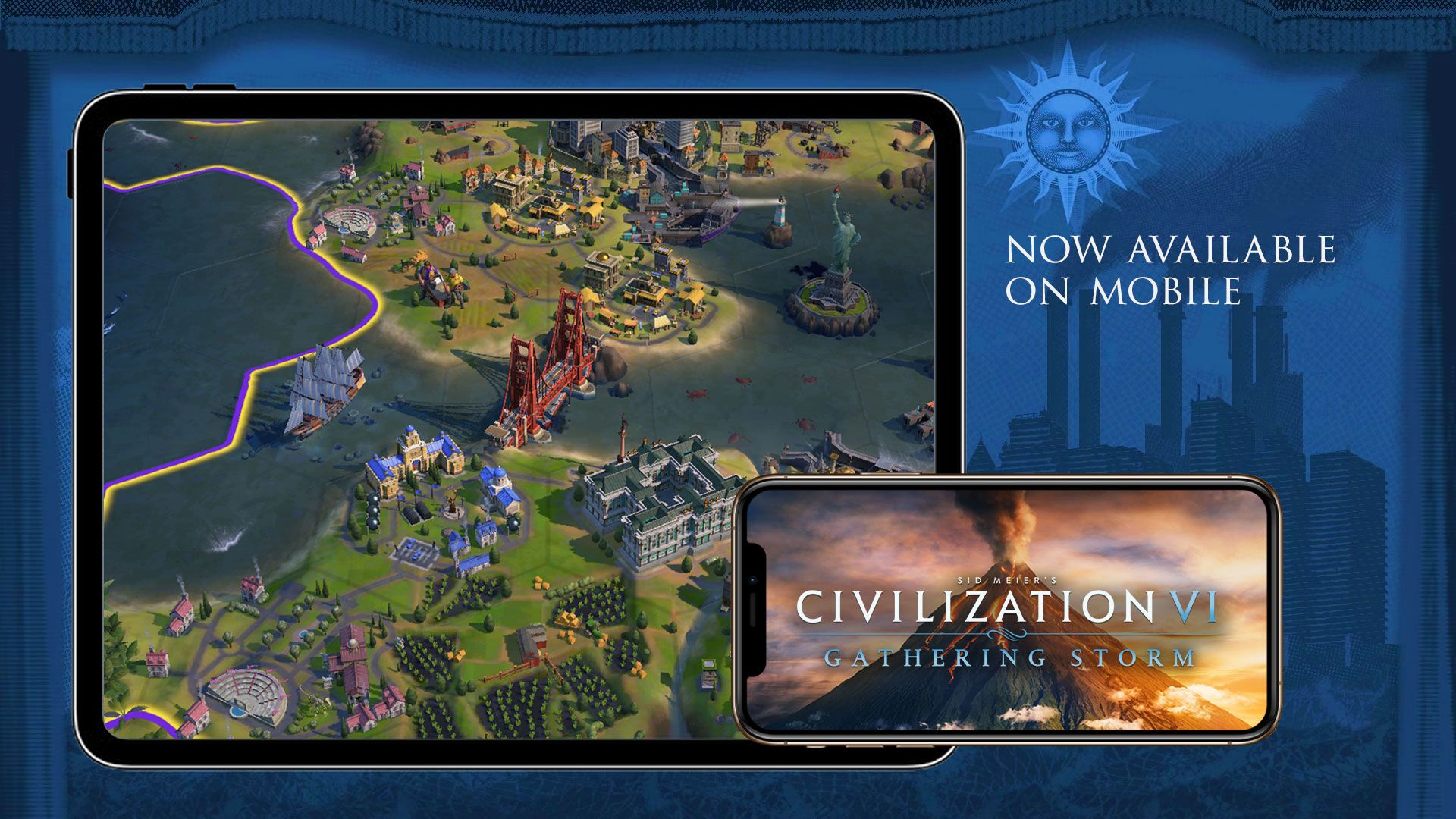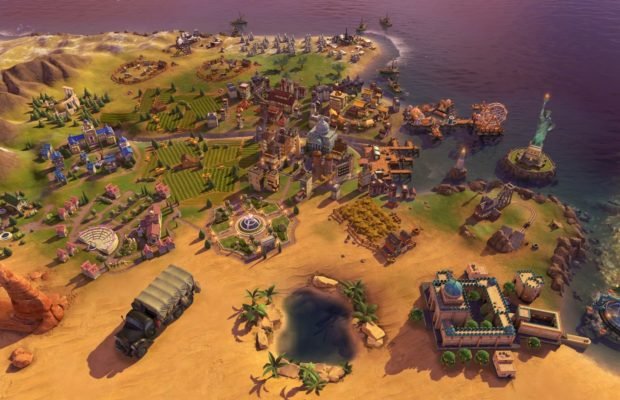

Of course, like a lot of things in Civilization, it’s a little odd and anachronistic to be playing as a tribal nation with club-wielding warriors and yet have precise awareness of which tiles will almost inevitably flood a few thousand years later. Again, this isn’t something that will happen suddenly and take you off guard in an unfair way, because at the very start of a game you can see the which tiles will flood in which order and there’s a new climate info screen that clearly breaks down exactly what’s happening.
#CIVILIZATION VI EXPANSIONS SERIES#
But the real game-changing element – and something entirely new to Civilization as a series – is that as temperatures rise, your world’s ice caps start melting and sea levels rise, causing entire coastal tiles to go the way of Atlantis. The new Climate Change system is related to disasters in that it uses an increase in storms and floods as part of its major consequences for burning too much coal and oil to power your cities’ factories, forcing you to weigh the short-term benefit of maximizing productivity against the long-term cost. But if you don’t care for that element of randomness in your 4X strategy, disasters can be turned off (or cranked up) using a slider on the game configuration screen. I love having disasters in play, because not only do they add to gameplay variety but they bring an important element of the real world to Civ VI that’s been conspicuously missing all this time. On top of that, mid-game technologies allow you to mitigate floods with dams, giving you fertility benefits with none of the damaging drawbacks.

And even when disasters do strike and leave a swath of your land’s improvements in ruins, the residual effect is increased fertility, which can help you recover quickly even if some of your population is wiped out. Floods and volcanic eruptions only take place on riverbanks and next to giant volcanos, obviously, so you know what you’re getting into when you build a city there. At the same time, they’re significant enough events that areas of the map that would’ve been previously effectively locked down and on autopilot can now spontaneously become problems that require thinking about solutions for again.
#CIVILIZATION VI EXPANSIONS FULL#
These are a great, never-before-seen (unless you count Civ IV’s random events) addition that, with the exception of generally less-destructive storms and droughts, are telegraphed clearly enough that they rarely feel like they’re coming out of left field to go full Pompeii on you. “Gathering Storm’s titular feature, though, is its natural disasters. It was a refreshingly distinctive set of priorities. However, they get major production bonuses to unimproved forests and rainforests, and to fishing boats, which can make their developed territory look very different from any other civilization’s. The Maori are also incapable of permanently harvesting resources and can’t recruit great writers, which are significant limitations. Mansa Musa of Mali is up a similar creek if he has no desert tiles in cities from which to send his traders for extra gold, and Pachacuti of the Inca without mountain tiles to mine for production is like a fish out of water.For my first full game, I played (on King difficulty) as Kupe of the Maori, who starts on the ocean with sailing technology unlocked – which is great except that you have to spend a few turns looking for dry land, which can set you behind the pack. A couple are probably a little too specialized to be practical unless you’re playing a very specific scenario: Canada’s Wilfrid Laurier, for instance, is great if you happen to start at the north or south of the map, but his ability to build farms on tundra means he’s out of his element in the tropics.

Most of the new civs and leaders are more than versatile and appealing: Suleiman of the Ottomans gets a unique governor, Matthias Corvinus of Hungary can turn city-states’ armies into powerful weapons, Dido of the Phoenicians can move her capital city almost at will, and Kristina of the Swedes automatically themes her Great Works.


 0 kommentar(er)
0 kommentar(er)
